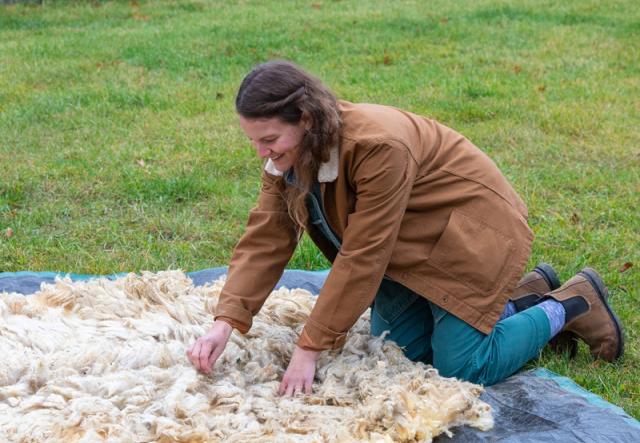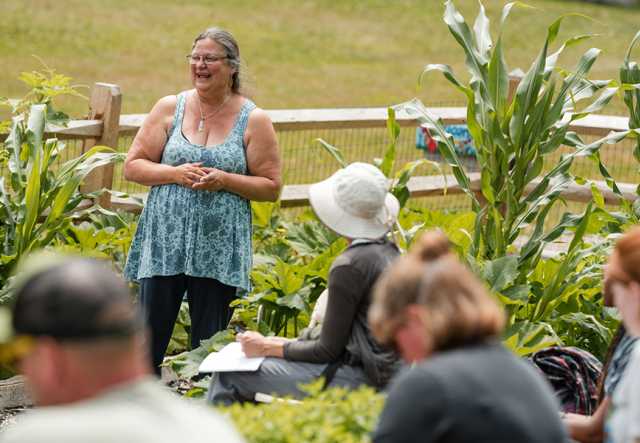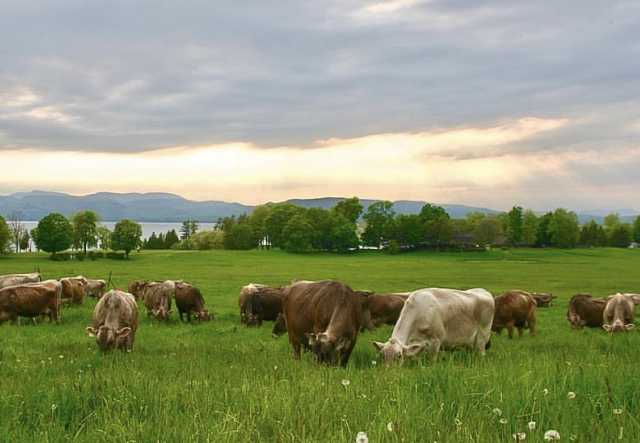Frequently Asked at the Children's Farmyard
From May to October, our Children's Farmyard introduces learners of all ages to farm animals, farming, and where food comes from. Here are the most common questions we get asked, along with the answers, of course. See what you can learn yourself!
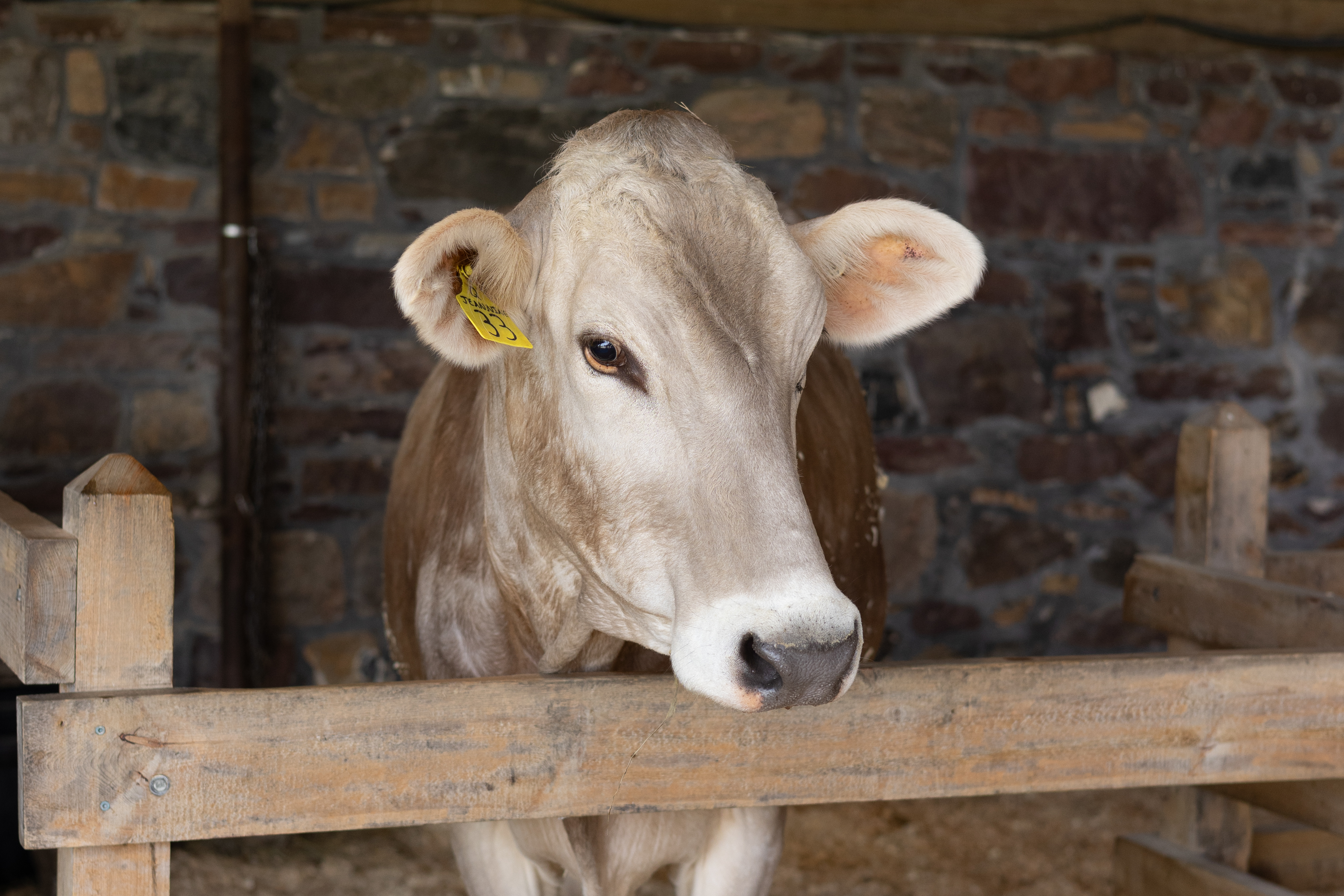
Q: How do dairy cows make milk?
A: A dairy cow makes milk to feed her newborn baby. But like humans, she won’t make milk forever by having one baby, so she she’ll be bred to have a calf about every year to continue producing milk. Dairy cows are often bred to have their first calf when they’re about 2 years old.
A dairy cow makes far more milk than her calf could ever drink, so we turn the extra milk into cheddar cheese!
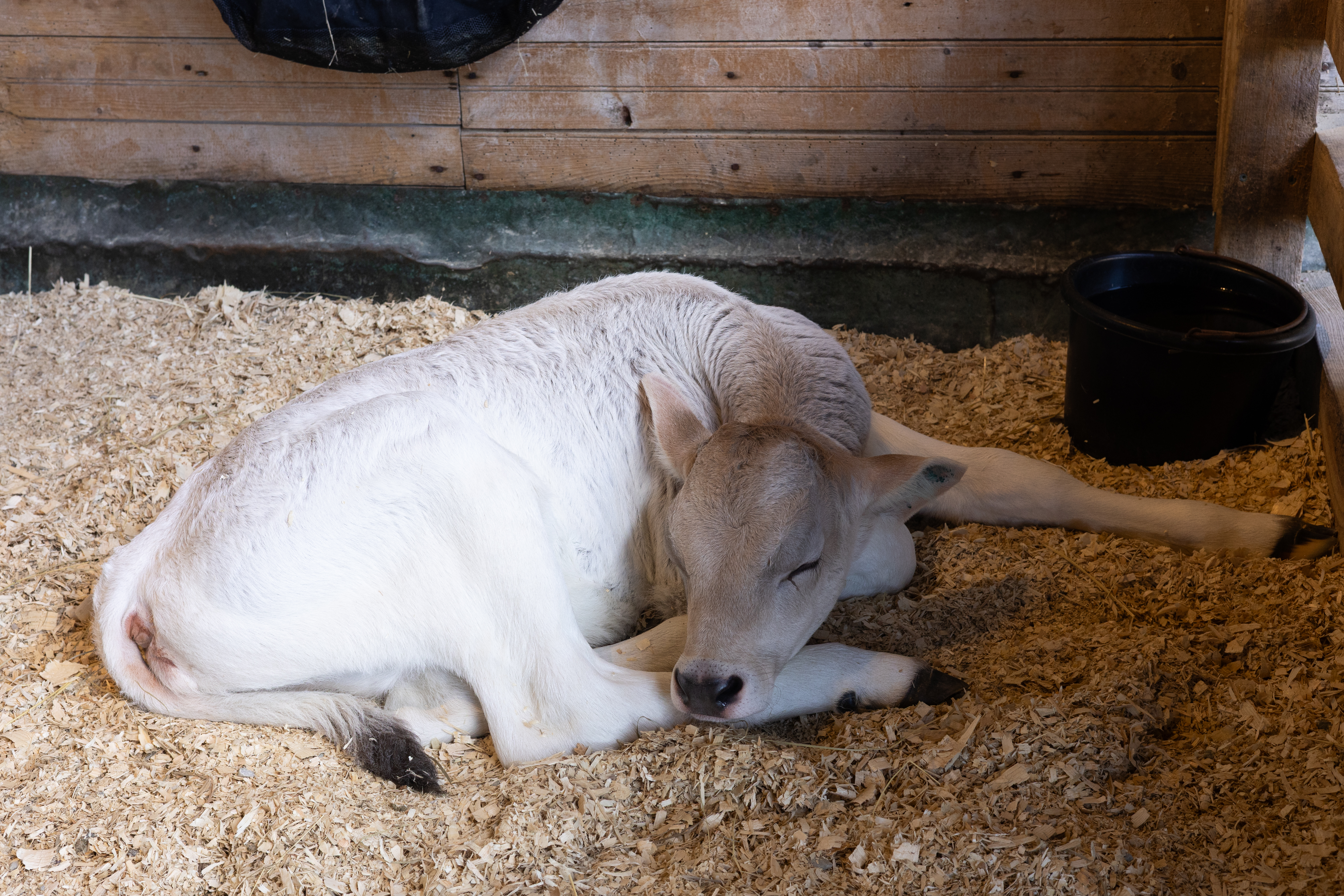
Q: Are the calves in the Farmyard Jeannine’s babies?
A: The Farmyard calves are the same breed as Jeannine (Brown Swiss!), but Jeannine isn't their mom. Their moms are out grazing on pasture. When they were younger, each calf was bottle-fed its own mother’s colostrum, but now they both drink Jeannine’s milk.
You can join us for bottle feeding daily at 4:30pm (unless our calves have been recently weaned). To ask for the daily activity schedule before visiting, call the farm at 802-985-8686.
Q: When are the sheep shorn? What do you do with the wool?
A: Our sheep flock is raised for both its wool and as a local food source for our restaurant and Farm Store. To prepare for lambing, our sheep are shorn in late winter before they enter the cozy barn. Shearing removes about 4 inches of wool from each sheep, creating more space in the barn. It also makes the ewe’s udder easier for newborn lambs to find, and is overall more hygienic for the ewe during lambing. Some of our sheep are shorn a second time in the fall, depending on their breed and how quickly their wool grows.
We keep a lot of the wool for educational programming: some is kept raw, and some is sent to a woolen mill to be professionally washed, carded, and returned as batting or roving. Additional wool is spun into yarn and woven into rugs, both for sale at the Farm Store.
Q: Do you have a rooster? Do hens lay eggs without a rooster?
A: We do not currently have a rooster, but hens will lay eggs regardless. An egg cannot be fertilized without a rooster present, however, which means that no chick will ever grow inside it.
Q: Do eggs come in colors other than white and brown?
A: Different breeds of chickens lay different colored eggs, including blue, green, and chocolate brown! The color pigment is added as the eggshell forms inside the hen’s body.
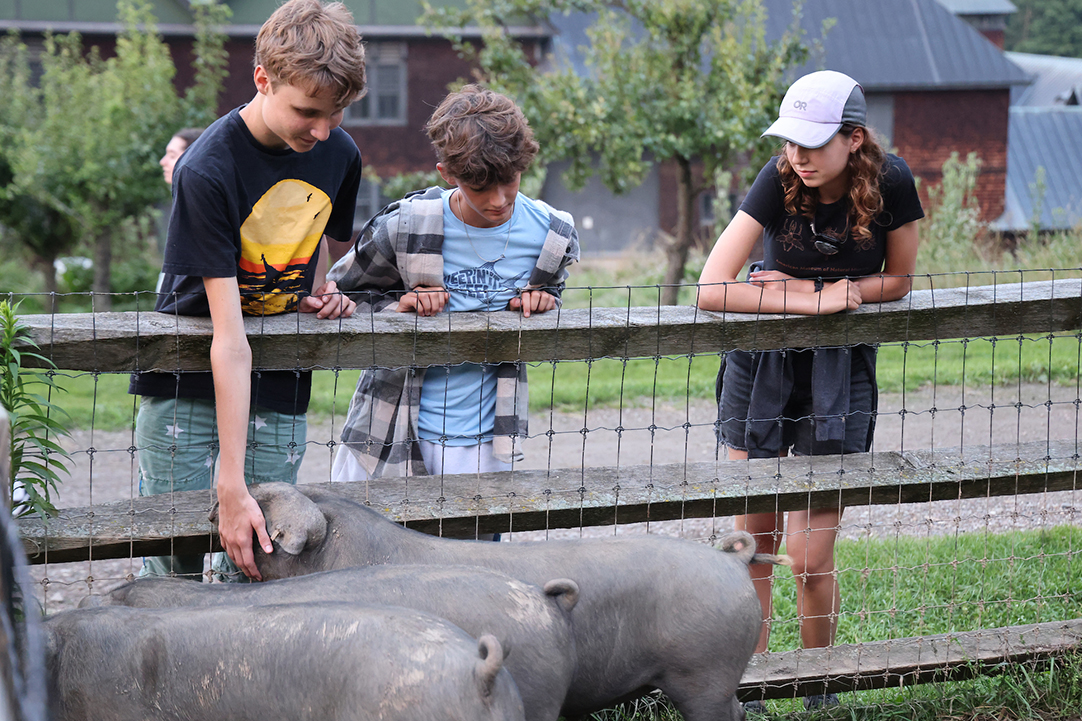
Q: What’s the deal with pigs and mud?
A: Pigs love mud! Mud helps cool pigs down and protects them from the sun and biting insects. They also clearly love to play in it: they are continuously expanding and renovating their mud pit!
Q: What are the horses wearing on their faces?
A: Our horses wear masks to keep flies from gathering on their faces, which can be very frustrating and irritating for a horse. But don’t worry: the horses can still see everything going on around them through their masks.
Q: What is the difference between a donkey and a mule?
A: Donkeys are a specific species of animal; mules are the hybrid offspring of a male donkey and a female horse. In the Farmyard, you will find two miniature donkeys, Brawny and Franco.
Mules were once important to Shelburne Farms: the Farm Barn was home to nearly 75 of them. They pulled farm wagons and equipment. Embodying the best traits of both donkeys and horses, mules are often ideal draft animals due to their strength, endurance, and sure-footedness.
Q: Why would a farm raise rabbits?
A: Angora rabbits are raised for their soft, warm wool that can be spun into luxurious yarn. Our rabbits, Coconut and Hazelnut, are French Angoras.
Other breeds of rabbit are raised as a high protein, low fat meat source. Freddy, our Rex/New Zealand cross, is representative of a breed that might be raised for its meat.
Q: Why are there picnic tables in the goat yard?
A: Goats LOVE to climb! They have a natural instinct to seek higher ground in order to avoid predators, scout for food, and just for the sheer fun of it.
Q: Can goats really eat poison ivy and plants with thorns?
A: Goats are considered browsers more than grazers, which means that they prefer to nibble on woody plants and shrubs, not only low lying grasses and legumes.
Poison ivy? No problem. Goat digestive systems can break down the toxic compound found in poison ivy! Giant blackberry thorns? All good. Goats have tough, thick skin on their lips and tongue that protect them from injury.
Q: Are there benefits to planting certain crops together in the garden?
A: Yes! Companion planting is a gardening technique in which you plant certain vegetables close to one another because of the benefits and support they can provide each other. You can read in detail about one of the most well known forms of companion planting, the Three Sisters Garden, in this blog.
Another tasty example of companion planting is the grouping of tomatoes and basil. Basil is known to deter certain garden pests while their flowers attract beneficial pollinators. Because of the different ways that tomato and basil plants grow, they do not have to compete for space. Some folks even claim that planting basil with your tomatoes enhances the flavor of your tomatoes!
We look forward to seeing you on your next visit to the Children's Farmyard! Click here to learn more or call the farm at 802-985-8686 on the day of to ask for the daily activity schedule.
